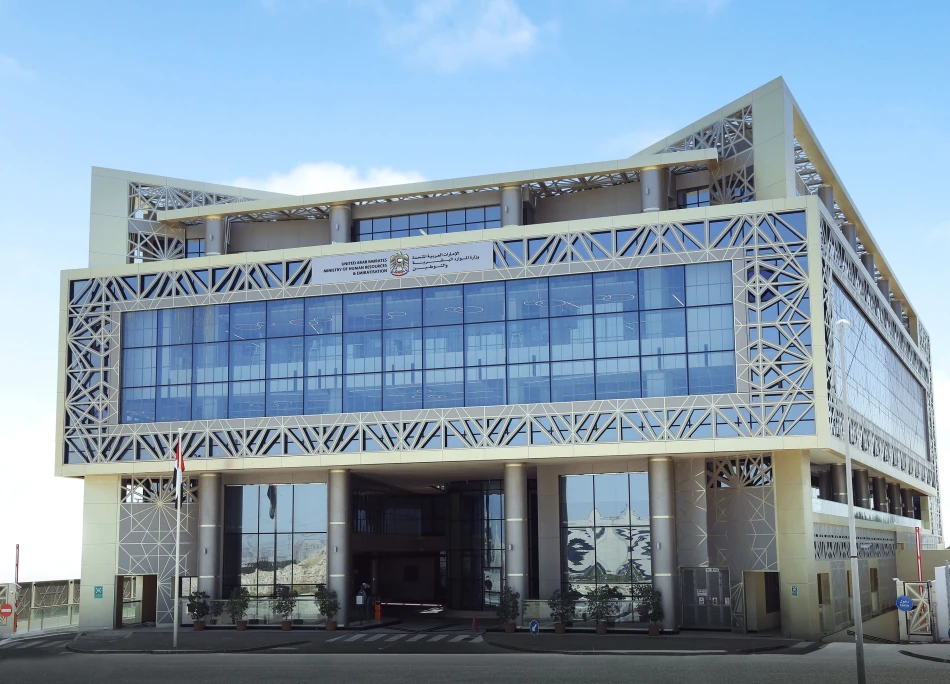
Human Resources and Localization Crackdown: 11 Unlicensed Recruitment Offices Busted in Al Ain
UAE Cracks Down Hard on Unlicensed Labor Recruitment Agencies in Major Enforcement Push
The UAE's Ministry of Human Resources and Emiratisation has shut down 11 unlicensed domestic worker recruitment offices in Al Ain, marking an escalation in the government's campaign to regulate the multi-billion dirham labor market. This latest action brings the total number of penalized agencies to over 50 in the first half of 2025 alone, signaling a decisive shift toward stricter oversight of an industry that serves hundreds of thousands of UAE households.
Coordinated Federal-Local Enforcement Strategy
The closures resulted from joint operations between the federal ministry and the Abu Dhabi Registration and Licensing Authority (ADRA), the business regulatory arm of Abu Dhabi's Department of Economic Development. The targeted offices were operating either without proper licenses or using permits issued outside Abu Dhabi emirate—both clear violations of domestic service worker regulations.
Beyond shuttering the facilities, authorities imposed financial penalties and referred cases to the Public Prosecution for potential criminal proceedings. This multi-pronged approach reflects the UAE's increasingly sophisticated regulatory enforcement, moving beyond administrative warnings to meaningful consequences.
Consumer Protection Drives Regulatory Urgency
The ministry cited "numerous community complaints" about these agencies failing to honor commitments to families and employers—a pattern that undermines consumer confidence in the domestic worker market. With an estimated 750,000 domestic workers employed across the UAE, regulatory failures can affect a substantial portion of the population who rely on these services for childcare, eldercare, and household management.
Health and Security Risks
Officials specifically warned about health and security risks posed by unlicensed operators, who may bypass mandatory medical screenings, background checks, and training requirements that legitimate agencies must enforce. These shortcuts can expose families to liability while leaving workers vulnerable to exploitation.
Broader Enforcement Campaign Gains Momentum
The Al Ain operation represents just the latest phase of an intensive regulatory crackdown. Earlier in 2025, authorities penalized 40 recruitment offices for 140 separate violations, while also shutting down 77 unauthorized social media accounts promoting illegal recruitment services—a modern twist on traditional enforcement that acknowledges how digital platforms have transformed the industry.
Digital Platform Oversight
The social media account closures, conducted with the Telecommunications and Digital Government Regulatory Authority, highlight how recruitment has moved online. Many unlicensed operators now use Instagram, WhatsApp, and other platforms to connect with customers, making traditional brick-and-mortar enforcement insufficient.
Market Implications and Industry Standards
This enforcement wave comes as the UAE implements its "flexible package model" for recruitment services, designed to standardize offerings and improve transparency. Licensed agencies operating under this framework can differentiate themselves through compliance, potentially capturing market share from shuttered competitors.
For legitimate operators, the crackdown creates opportunities to expand customer bases while justifying premium pricing through verified compliance and service guarantees. The ministry's public emphasis on working only with licensed agencies essentially provides free marketing for compliant businesses.
Regional Leadership in Labor Market Regulation
The UAE's aggressive stance positions it ahead of regional peers in labor market governance. While countries like Saudi Arabia and Qatar have focused primarily on large-scale construction and service worker protections, the UAE's detailed oversight of domestic worker recruitment demonstrates more comprehensive labor market maturity.
This regulatory sophistication supports the UAE's broader economic diversification goals by ensuring service sector reliability—crucial for attracting and retaining the expatriate professionals who drive key industries like finance, technology, and logistics.
Looking Forward: Sustained Enforcement Expected
The ministry's establishment of dedicated hotlines (600590000 and 80084) and digital reporting channels suggests this enforcement campaign will continue indefinitely rather than representing a one-time sweep. Officials explicitly stated they will not tolerate violations, indicating that regulatory pressure will likely intensify rather than diminish.
For consumers, the government recommends verifying agency licensing through the ministry's official website before engaging services. This simple step can prevent involvement with operators facing potential shutdown and prosecution—protecting both families seeking workers and the workers themselves from exploitative conditions.
Most Viewed News

 Sara Khaled
Sara Khaled






